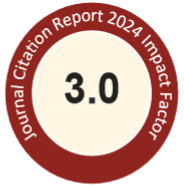Keywords
ursolic acid, chemosensitivity, pancreatic cancer, MDR1, microbiota
Abstract
Gemcitabine (GEM) is a first-line drug for pancreatic cancer therapy, but GEM resistance is easily developed in patients. Growing evidence suggests that cancer chemoprevention and suppression are highly associated with dietary phytochemical and microbiota composition. Ursolic acid (UA) has anti-inflammatory and anticancer effects; however, its role in improving cancer drug resistance in vivo remains unclear. In this study, the aim was to explore the role of UA in managing drug resistance-associated molecular mechanisms and the influence of gut microbiota. The in vitro results showed that receptor for advanced glycation end products (RAGE), nuclear factor kappa B p65 (NF-κB/p65), and multidrug resistance protein 1 (MDR1) protein levels were significantly increased in GEM-resistant pancreatic cancer cells (named MIA PaCa-2 GEMR) compared to MIA PaCa-2 cells. Downregulation of RAGE, pP65, and MDR1 protein expression not only was observed following UA treatment but also was seen in MIA PaCa-2 GEMR cells after transfection with a RAGE siRNA. Remarkably, the enhanced effects of UA coupled with GEM administration dramatically suppressed the RAGE/NF-κB/MDR1 cascade and consequently inhibited subcutaneous tumor growth. Moreover, UA could increase alpha diversity and regulate the composition of gut microbiota, especially in Ruminiclostridium 6. Taken together, these results provide the first direct evidence of MDR1 attenuation and chemosensitivity enhancement through inhibition of the RAGE/NF-κB signaling pathway in vitro and in vivo, implying that UA may be used as an adjuvant for the treatment of pancreatic cancer in the future.
Recommended Citation
Lia, Zih-Ying; Chena, Sheng-Yi; and Yen, Gow-Chin
(2021)
"Ursolic acid restores sensitivity to gemcitabine through the RAGE/NF-κB/MDR1 axis in pancreatic cancer cells and in a mouse xenograft model,"
Journal of Food and Drug Analysis: Vol. 29
:
Iss.
2
, Article 6.
Available at: https://doi.org/10.38212/2224-6614.3346
Creative Commons License

This work is licensed under a Creative Commons Attribution-Noncommercial-No Derivative Works 4.0 License.
Included in
Food Science Commons, Medicinal Chemistry and Pharmaceutics Commons, Pharmacology Commons, Toxicology Commons


Abstract Image